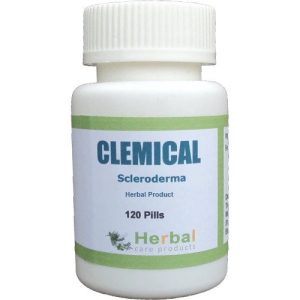Scleroderma is a chronic autoimmune disease that affects the connective tissues and causes hardening, tightening, and thickening of the skin and internal organs. Managing scleroderma requires a comprehensive approach that includes medical treatment, lifestyle modifications, and dietary changes. A well-planned diet can play a crucial role in alleviating symptoms, boosting immune function, and promoting overall well-being for individuals with scleroderma. We will explore the best diet plan for patients of scleroderma, focusing on key nutrients, foods to include and avoid, hydration, meal planning, exercise, professional guidance, and symptom management.
Scleroderma
Scleroderma, also known as systemic sclerosis, is a rare and complex autoimmune disease. It is characterized by abnormal growth of connective tissues, leading to fibrosis and the hardening of the skin and internal organs. Scleroderma can affect various organs such as the skin, lungs, heart, kidneys, and gastrointestinal tract. Symptoms vary widely, but commonly include thickened and tight skin, joint pain, muscle weakness, digestive issues, and Raynaud’s phenomenon.
Importance of Diet for Scleroderma Patients
While there is no specific diet that can cure or reverse scleroderma, a healthy and well-balanced diet can help manage symptoms, support immune function, and improve overall health. A nutrient-rich diet can aid in reducing inflammation, promoting tissue repair, maintaining a healthy weight, and preventing complications associated with scleroderma.
Key Nutrients for Scleroderma Patients
- Omega-3 Fatty Acids: Omega-3 fatty acids have anti-inflammatory properties and can help reduce inflammation in the body. Good sources include fatty fish like salmon, mackerel, and sardines, as well as flaxseeds, chia seeds, and walnuts.
- Antioxidants: Antioxidants help protect the body’s cells from damage caused by free radicals. Colorful fruits and vegetables such as berries, citrus fruits, leafy greens, and bell peppers are excellent sources of antioxidants.
- Vitamin D: Vitamin D plays a vital role in immune function and bone health. Sunlight exposure, fortified dairy or plant-based milk, fatty fish, and egg yolks are good sources of vitamin D.
- Fiber: Adequate fiber intake is important for digestive health and maintaining a healthy weight. Whole grains, fruits, vegetables, legumes, and nuts are rich sources of dietary fiber.
- Probiotics: Probiotics are beneficial bacteria that promote a healthy gut microbiome. They can be found in fermented foods such as yogurt, kefir, sauerkraut, and kimchi.
Foods to Include in a Scleroderma Diet
- Fish and Seafood: Fatty fish like salmon, mackerel, and trout provide omega-3 fatty acids, which help reduce inflammation and support heart health.
- Fruits and Vegetables: Colorful fruits and vegetables are packed with antioxidants, vitamins, and minerals that support overall health. Aim for a variety of options to maximize nutrient intake.
- Whole Grains: Whole grains like quinoa, brown rice, oats, and whole wheat bread provide fiber and essential nutrients. They also help regulate blood sugar levels.
- Legumes and Nuts: Legumes such as beans, lentils, and chickpeas are excellent sources of plant-based protein, fiber, and other essential nutrients. Nuts like almonds, walnuts, and Brazil nuts offer healthy fats and antioxidants.
- Dairy or Plant-Based Alternatives: Calcium-rich foods like dairy products or fortified plant-based alternatives are important for maintaining bone health.
Foods to Avoid in a Scleroderma Diet
- Processed Foods: Processed foods often contain high levels of additives, preservatives, and unhealthy fats. These can contribute to inflammation and worsen symptoms.
- Added Sugars: Excessive sugar consumption can lead to weight gain, inflammation, and increased risk of various health conditions. Limit intake of sugary beverages, desserts, and processed snacks.
- Saturated and Trans Fats: Foods high in saturated and trans fats, such as red meat, fried foods, and commercially baked goods, can contribute to inflammation and heart disease. Opt for healthier fat sources like avocados and olive oil.
- Excessive Sodium: High sodium intake can lead to fluid retention and elevated blood pressure. Limit consumption of processed foods, canned soups, and salty snacks.
- Alcohol and Caffeine: Both alcohol and caffeine can worsen symptoms such as acid reflux, heartburn, and Raynaud’s phenomenon. It’s best to moderate or avoid their intake.
Hydration and Scleroderma
Proper hydration is essential for individuals with scleroderma. Drinking an adequate amount of water helps maintain skin elasticity, supports digestion, and prevents complications like kidney stones. Aim to drink at least 8 cups (64 ounces) of water per day, unless otherwise advised by a healthcare professional.
Meal Planning Tips for Scleroderma Patients
- Plan meals around nutrient-dense whole foods, including a variety of fruits, vegetables, lean proteins, whole grains, and healthy fats.
- Consider smaller, more frequent meals to ease digestion and prevent discomfort.
- Cook meals at home whenever possible, as it allows better control over ingredients and portion sizes.
- Experiment with different cooking methods such as steaming, baking, or grilling to retain nutrients and flavors.
- Include herbs and spices to enhance the taste of dishes without relying on excessive salt or unhealthy seasonings.
- Keep a food diary to track symptoms and identify any trigger foods or sensitivities.
The Role of Exercise in Scleroderma Management
Regular exercise can provide numerous benefits for individuals with scleroderma. It helps maintain joint flexibility, improve circulation, strengthen muscles, and boost overall mood and well-being. However, it’s crucial to consult with a healthcare professional before starting an exercise regimen to ensure it’s tailored to individual needs and limitations.
Seeking Professional Guidance
Since scleroderma is a complex condition, it’s advisable to work with healthcare professionals, including registered dietitians, rheumatologists, and other specialists. They can provide personalized guidance, develop an appropriate diet plan, and monitor overall health and nutritional status.
Managing Symptoms through Diet and Lifestyle
In addition to a healthy diet, certain lifestyle modifications can help manage specific symptoms of scleroderma:
Coping with Digestive Issues
- Eat smaller, frequent meals to aid digestion and reduce the risk of acid reflux or heartburn.
- Avoid trigger foods that may exacerbate digestive symptoms.
- Chew food thoroughly and eat slowly to support proper digestion.
- Consider incorporating probiotic-rich foods or supplements to promote a healthy gut microbiome.
Promoting Joint Health
- Maintain a healthy weight to alleviate stress on joints.
- Engage in low-impact exercises like swimming, yoga, or tai chi to improve joint flexibility and reduce pain.
- Apply heat or cold therapy to alleviate joint discomfort.
Mental Health and Emotional Well-being
Seek support from a mental health professional or support groups to cope with the emotional challenges of living with a chronic illness.
Practice stress-management techniques such as meditation, deep breathing exercises, or engaging in hobbies and activities that bring joy.
Conclusion
A well-planned diet plays a significant role in managing scleroderma symptoms, promoting overall health, and enhancing quality of life for patients. By incorporating key nutrients, focusing on whole foods, and avoiding trigger foods, individuals with scleroderma can optimize their well-being and minimize symptom severity. It’s essential to work closely with healthcare professionals to develop a personalized diet plan that meets individual needs and addresses specific symptoms.
FAQs (Frequently Asked Questions)
- Can diet alone cure scleroderma? Diet cannot cure scleroderma, but it can help manage symptoms, support immune function, and improve overall well-being.
- Is there a specific diet for scleroderma? While there’s no one-size-fits-all diet for scleroderma, a nutrient-rich, well-balanced diet focusing on whole foods is recommended.
- Should I take supplements for scleroderma? It’s best to consult with a healthcare professional before starting any supplements to determine if they’re necessary and safe for you.
- Can exercise worsen scleroderma symptoms? Exercise, when done properly and with guidance, can actually improve scleroderma symptoms by maintaining joint flexibility and overall health.
- Is it necessary to consult a dietitian for scleroderma? Working with a registered dietitian can provide valuable guidance in developing a personalized diet plan and addressing individual needs.





